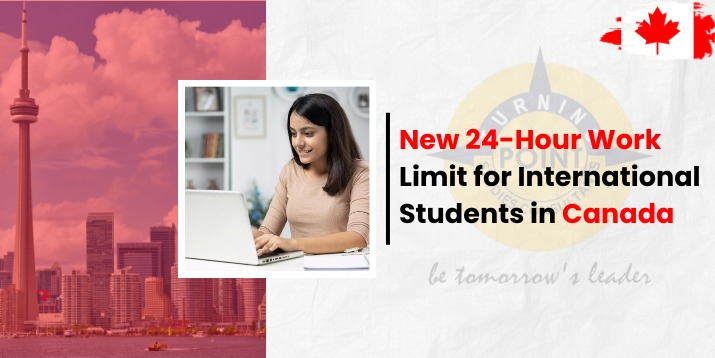


Recent changes in Canada's work policies for international students have sparked discussion among those aspiring to study abroad. With concerns raised about work-hour limits, students are eager to understand the implications of these adjustments.
Key Points:
-
Immigration Minister Marc Miller has announced alterations to off-campus work hours for international students in Canada. Effectively after 30 April, students must adhere to a 20-hour per week limit until September, when a new policy allowing 24 hours per week will take effect.
-
The shift follows a temporary policy introduced in November 2022, allowing some students to work full-time (40 hours per week) off-campus due to pandemic-related challenges.
-
Stakeholders, including the Canadian Alliance of Student Associations (CASA), express concerns about financial impacts on students, noting potential annual losses and limitations in addressing high living costs.
-
Minister Miller justifies the changes by emphasizing a balance between financial needs and academic success, citing research on work-hour limits and academic performance.
-
The adjustments come amid broader changes affecting international students, including increased financial requirements for study permits and a capped intake expected to reduce approved study permits by 35% in 2024 compared to 2023.
This announcement follows other significant changes affecting international students, including increased financial requirements for study permits and a capped intake expected to reduce approved study permits by 35% in 2024 compared to 2023.
Impact on Students:
The adjustment in off-campus work hours has significant ramifications for international students, particularly those grappling with escalating living expenses. Mateusz Salmassi, Director of Advocacy at the Canadian Alliance of Student Associations (CASA), notes that over 200,000 international students will face an annual financial loss of at least $5,000 due to this change. Restricting work hours limits students' options to address financial challenges, potentially exacerbating struggles associated with the high cost of living while studying in Canada.
Why the Previous Limit was Extended to 40 Hours per Week:
The temporary policy, introduced in November 2022, allowed certain international students to work full-time off-campus (40 hours per week) during academic seasons. This measure aimed to alleviate pandemic-induced labor shortages and assist students in meeting rising living costs. The extension of the policy beyond its initial deadline in December 2023 to April 2024 was motivated by ongoing economic challenges and the need to support international students amidst persisting uncertainties.
How is the New Limit Beneficial for Students:
Minister Marc Miller justifies the adjustment by emphasizing the need for a balanced approach. He points out that while nearly 80% of international students currently work more than 20 hours per week, academic performance tends to decline when students exceed 28 hours of work weekly, with dropout rates increasing beyond 24 hours. The new limit of 24 hours per week aims to strike a balance between addressing financial needs and safeguarding academic outcomes. Miller underscores the importance of aligning Canada's policies with international standards to attract students committed to work and study.
today and make your
experience easier?


